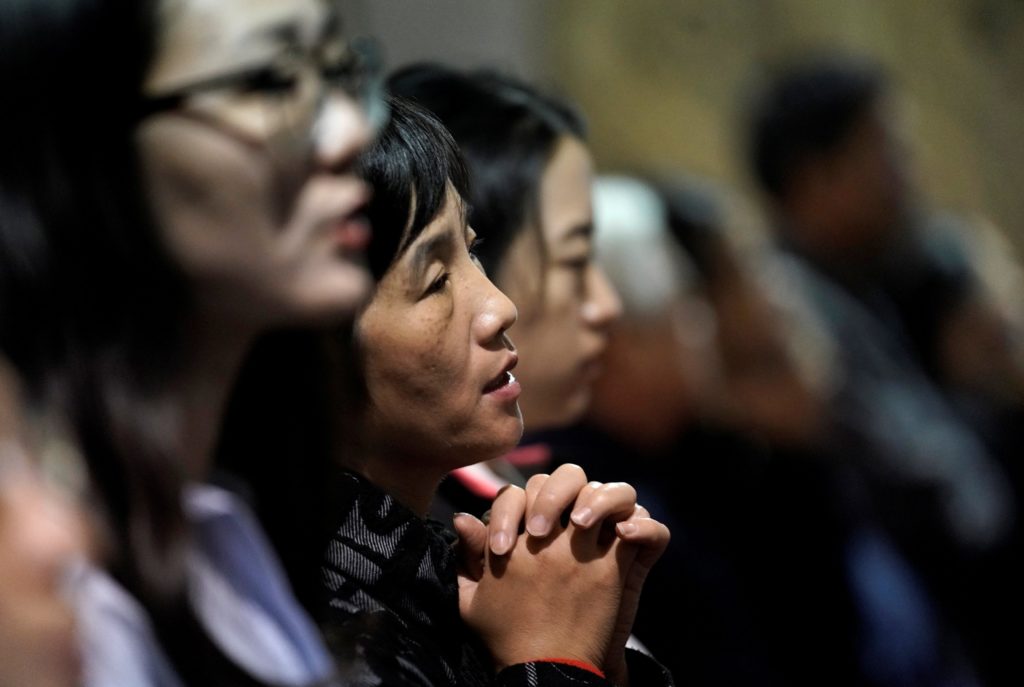ROME — Though it really shouldn’t, it seems to have surprised some observers that Vatican officials recently had positive things to say about China, despite concerns over religious freedom, human rights, and President Xi Jinping’s ever cozier relationship with Vladimir Putin.
Italian Cardinal Pietro Parolin, the Vatican’s secretary of state, told reporters March 14 that Rome looks at Sino-Vatican ties with “an attitude of hope” regarding a dialogue that “both sides want to continue.”
Meanwhile, British Archbishop Paul Gallagher, the Vatican’s foreign minister, recently told EWTN that despite difficulties with a controversial deal regarding the appointment of Catholic bishops in the country, he’s optimistic about a “greater understanding, a greater respect between the two parties.”
At the same time Western officials were expressing alarm over Jinping’s summit with Putin, coverage in the Vatican’s state-owned media was neutral to positive, stressing hope that a Chinese peace plan for Ukraine might lead to talks for a negotiated settlement.
While the process certainly has accelerated under Pope Francis, improving ties with Beijing has been a diplomatic priority for every pope since the Communist takeover of the country in 1949. It was under Pope John Paul II, for instance, that Cardinal Angelo Sodano, then the secretary of state, famously declared the Vatican would close its embassy in Taiwan “not tomorrow but today” if Beijing would consent to diplomatic relations.
This pro-China push in the Vatican has deep roots.
First, history matters. To this day, many in the Vatican feel regret for the Chinese rites controversy in the 17th and 18th centuries, seeing it as a missed opportunity to forge a truly Chinese expression of Catholicism.
The resulting sense that the Church’s approach must be more deferential and respectful of China’s cultural identity is powerful — all the more so under a Jesuit pope who recently declared Matteo Ricci “venerable,” and for whom the legacy of the great Jesuit missionary to China can’t help but condition his outlook.
Second, the Vatican’s China policy is also about realpolitik.
The Vatican takes its unique status as a sovereign state extremely seriously, seeing it as key to its ability to act as a voice of conscience in global affairs. If the Vatican wants to move the diplomatic ball, it cannot afford to ignore or alienate the emerging superpower of the 21st century, a country which, all by itself, represents almost one-fifth of the human population.
It’s one thing to take a critical line toward the religious freedom and human rights policies in say, North Korea or Eritrea, and quite another to condemn a country which already has the world’s largest military and soon will have the world’s largest economy.
Third, the Vatican is among the world’s smallest sovereign states, with only a nominal standing army in the Swiss Guard and no real economy to speak of. By definition, if it is to matter internationally, it can only do so in a multilateral world.
As a result, the Vatican has a comfort level regarding the rise of Beijing as a rival to Washington, D.C., which other traditionally Western powers and allies don’t necessarily share. When Putin was told that “China will work with Russia to uphold true multilateralism, promote a multipolar world, and greater democracy in international relations,” it’s the sort of rhetoric that plays well in Vatican circles. That’s especially so under history’s first pope from the developing world, for whom multilateralism is both a geopolitical and a biographical imperative.

Fourth, the Vatican’s diplomatic freedom of movement is more constrained than, say, the United States, for the simple reason that President Joe Biden doesn’t have to worry about a large population of Americans living inside Chinese borders. Counting expats and immigrants, there are maybe 100,000 Americans in China today, most of whom probably could be evacuated if push ever came to shove.
By way of contrast, there are roughly 13 million Catholics in China, who aren’t going anywhere. A pope therefore always has to consider what the fallout from his words or deeds may be for those vulnerable members of his own flock.
Fifth, the Vatican has always been alarmed about the split between an official Church in China tolerated by the government and an underground community, because it creates the prospect of schism. The breakaway faction includes illicitly, yet validly, ordained Catholic bishops — meaning clergy Rome is constrained by its own theology to recognize as real bishops, even if they lack the pope’s permission to act as such.
Almost nothing stirs Vatican nightmares like schism, and any pope would feel compelled to bend over backward to try to end it.
Sixth and finally, the Vatican also faces evangelical considerations.
Experts in religious demography today say China is the last great missionary frontier on earth, with a burgeoning population, a deep spiritual hunger after 70 years of state-imposed atheism, and no dominant religious tradition. Some calculations are that the 13 million Catholics in China could easily become 130 million within a generation if there were an opening.
Religious orders and Catholic movements periodically hold closed-door conferences in Rome to strategize for the “evangelization of China,” just waiting for a political deal that would clear the ground, and the Vatican would be hesitant to set back that prospect.
In sum, while Francis has dialed up the Vatican’s policy of outreach to Beijing, he didn’t invent it, and it almost certainly won’t end with him. It’s part of the physiognomy of Vatican diplomacy, which doesn’t seem likely to mutate anytime soon.

